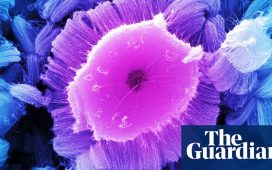In the stormy North Sea off Denmark, chemicals giant INEOS is leading the way in Carbon Capture and Storage (CCS) to make a cleaner future for us all. On Wednesday this week, Crown Prince Frederik of Denmark triggered the flow of CO2 in the innovative installation. Founded by self-made British billionaire and Manchester United fan Sir Jim Ratcliffe—he has made an offer to buy the club—British-based INEOS is the fourth largest chemical company in the world and is now pioneering the process of removing CO2 and storing it in a former oil field 1,800 metres beneath the seabed some 200 kilometres from the port of Esbjerg in south-west Denmark.
If this succeeds, it paves the way for further such projects off the British coast. “Absolutely,” says INEOS spokesman Richard Longden. “We are learning a lot from the work that is going into this. We are involved in Acorn and HyNet 2 in the UK.
We have committed to invest $1bn into Grangemouth to reduce carbon emissions by one million tonnes a year, potentially linked to Acorn.”
Collaborator Acorn is part of the “Scottish Cluster” bringing companies together to develop low-carbon technologies in order to meet net zero goals, while HyNet is the UK’s leading industrial decarbonisation project.
The technology behind CCS has been developed over 40 years, but this is the first time that the whole chain has been tested together, across national borders, to permanently store CO2 intended to mitigate climate change.
“We capture the CO2 from the beverage industry in our INEOS Antwerp facility,” says Longden. “It is our oil reservoir and our Nini Platform in the North Sea through which we will inject CO2. INEOS have the geological know-how for the reservoir and most importantly, we will be the operator of the CCS Project.”
Up and running, the project plans to store up to 1.5 million tonnes of CO2 per year in 2025/2026 and some eight million tonnes of CO2 per year in 2030. Like most new green technology, such an enormous investment needs state subsidies and Danish project partner Greensand Consortium has received 26 million euros from the Danish government.
British energy company DRAX is keen to invest £2bn in a carbon-capture power station in North Yorkshire, possibly creating some 10,000 jobs, but is being tempted away by the generous green subsidies offered by President Biden in the US.
“We expect Denmark and the US to progress more quickly than the UK,” says Longden.
Potentially, the CCS pioneered by INEOS in Denmark can allow other countries, including the UK, to reach Net Zero more effectively without compromising the need for gas and other carbon fuels in the meantime.
“We can continue to grow energy,” says INEOS Energy Chairman Brian Gilvary, “but we must deal with the carbon.” A re-purposed oil rig in the North Sea may well be just the right answer.











